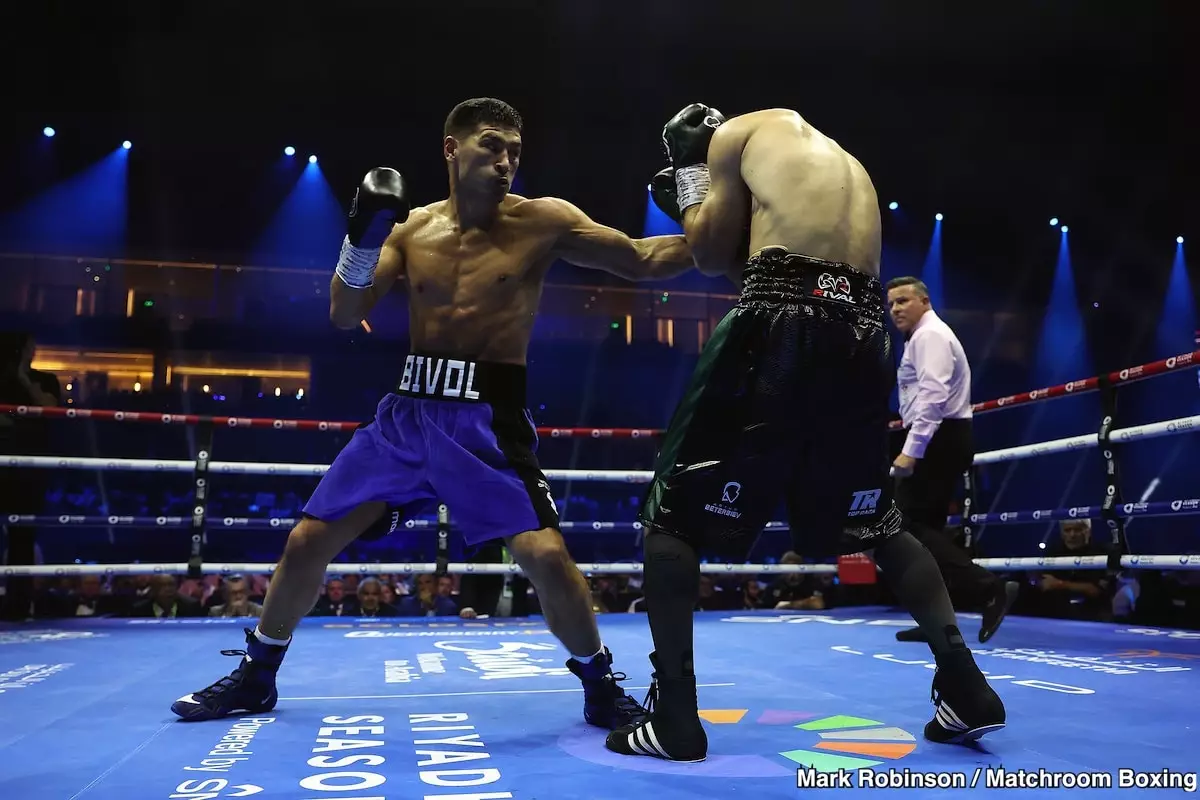In the world of professional boxing, few matchups capture the attention of fans and analysts alike like the upcoming rematch between Dmitry Bivol and Artur Beterbiev. This clash, set to take place in Riyadh on February 22nd, has garnered significant interest not just for the titles at stake but also for the dramatic narrative that unfolded during their first encounter. Shakur Stevenson, the current WBC lightweight champion, has emerged as a notable voice in this discussion, offering his perspective on Bivol’s performance and what is required for a successful outcome in the rematch.
Stevenson asserts that Bivol had the upper hand in their initial bout and should have walked away with the victory. He attributes Bivol’s eventual loss to a lapse in focus during critical moments of the fight. Specifically, Stevenson points to the championship rounds where Bivol appeared to disengage from the fight, a tactic that ultimately benefited Beterbiev and allowed him to seize control. This observation raises an important question: can a boxer truly afford to let down their guard when the stakes are so high?
In assessing the first fight, it is crucial to consider how momentum can shift in boxing. Bivol showed impressive technique and strategy early on, but his retreat in the latter rounds proved costly. The judges awarded Beterbiev a split decision victory, reflecting how perception and control in the ring can strongly influence scoring, even if the fight’s earlier rounds favored Bivol.
For the upcoming rematch, Stevenson emphasizes the importance of continuous engagement. He argues that Bivol must exhibit a relentless drive throughout the match, particularly in the later rounds where many fights can be decided. This does not merely translate to physical performance but also requires maintaining mental fortitude under pressure. Bivol needs to remember that while technique and strategy are pivotal, his psychological state and approach to the final rounds will be equally crucial for success.
Moreover, both fighters employ a cerebral approach to the sport, with Bivol’s style resembling Stevenson’s in its strategic execution and movement. Their shared methodologies might be a source of inspiration for Bivol, as Stevenson himself exemplifies the importance of keeping the pedal to the metal in high-stakes scenarios.
As the rematch approaches, all eyes will be on Dmitry Bivol to see if he can adapt and take Stevenson’s advice to heart. With the potential for an electrifying showdown, fans are eagerly awaiting to see if Bivol can rectify the mistakes of the past and claim a decisive victory over Artur Beterbiev. The narrative is rich, the stakes high, and if Bivol can maintain his focus throughout the entirety of the bout, he just might carve his name deeper into the annals of boxing glory.

